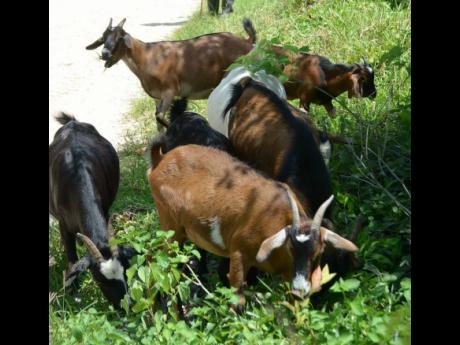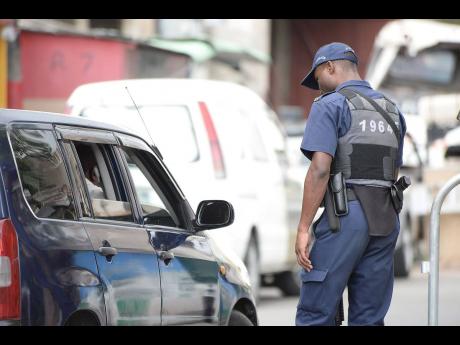Goat meat feeding gangs … Criminals using any means necessary to enrich themselves
Organised criminal gangs continue to terrorise business operators, raking in millions of dollars through extortion and theft, forcing law enforcement to re-evaluate their fight against more than 300 syndicates operating in Jamaica.
A 2018 study conducted by the Jamaica Constabulary Force’s National Intelligence Bureau has uncovered that gangsters aligned to the organised Clansman Gang rake in more than $57 million each year from extortion at the Spanish Town bus park and its environs – common sites for shootings in St Catherine.
At the same time, less organised criminal networks – often referred to as first-generation gangs – have pinned their survival on robberies, including praedial larceny, which in Clarendon saw the theft of more than 1,000 goats last year, and in excess of a dozen gang-related murders and shootings in the parish.
Clarendon – its capital May Pen a ‘feeding tree’ for criminal gangs involved in extortion – is the latest of six limited states of public emergency (SOE), and two zones of special operations (ZOSO) implemented to curtail criminal activities.
OVERSEAS FINANCING
The report also pointed out that gangsters in the parish are financed by individuals residing overseas.
“While established criminal gangs are the main contributors to the (Clarendon) division murder figures, non-established or groups of three or more persons are also significantly contributing to the division’s crime statistics. Non-established gangs are mainly involved in praedial larceny and other acquisition crimes that may lead to murder,” the report stated.
“This phenomenon has contributed to at least 15 murders and 18 shootings over 2017, and eight murders and six shootings in 2018. The Hayles, Webb Lane, and One Blood gangs are heavily involved in goat theft as a means of financing their nefarious activities.”
The study cited the Exeter and Milk River police areas as the most affected, accounting for 257 and 200 reports of goat theft, respectively.
Some of the meat, according to the findings, is presumed to have been used in trade between Jamaica and countries like Haiti for guns and ammunition, while some are sold to local butchers.
According to the report, the Clansman Gang continues to have a major footing in Spanish Town and centred its activities primarily around the city’s bus park, where members continue to ‘tax’ transportation operators, shoppers, and store owners daily as part of their exploitation scheme.
In 2018, $57 million was reportedly extorted from business owners in the area, which is in contrast to $85 million for the previous year, as law enforcers tighten their dragnets on gangsters from St Catherine and those who might have migrated from nearby police divisions, including war-torn sections of Linstead.
Like many of Jamaica’s more than 300 gangs, a comprehensive police investigation has noted that Spanish Town’s Clansman Gang has weakened significantly, particularly due to intra-gang conflicts. Andre ‘Blackman’ Bryan is the leader of one faction.
He and several relatives were arrested a week before the security forces enforced a state of emergency in St Catherine.
Bryan, however, continues to influence bloodbaths from his jail cell, which is another long-standing feature of Jamaican gangs, the 2018 study conducted by the Jamaica Constabulary Force’s National Intelligence Bureau asserted.
“Persons who have been taken into lawful custody by the police continue to contribute to violence while being in custody. This is evident in the Clansman Gang, as the leader of the Blackman faction of the gang rose to prominence while being in police custody,” said the report, noting the participation of corrupt law officials.
LOTTERY SCAM
Gangsters operating in St James, Westmoreland and Hanover continue to use the illicit lottery scam as a means of financing their operations, racking up more than 332 murders last year. Almost half of the homicides reportedly stemmed from conflicts over guns, and the collection and sharing of lottery scam spoils.
The police have remained resolute in their commitment to stem a wave of gang rivalry in the gritty St Andrew South Police Division, which currently houses at least 75 gangs, the most in any division across the island.
Sections of the Waterhouse, Cockburn Pen, Marverley and Riverton communities remain areas of focus, as the security forces continue an SOE put into operation in the division in July.


